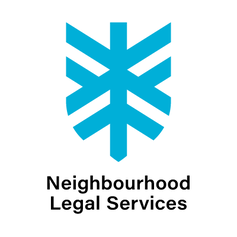|
Laura Cvetovski Apart from the obvious benefits that are associated with Canadian citizenship – such as the ability to vote and run for political office, the travel benefits (a Canadian passport makes travel, obtaining visas and even re-entering the country significantly easier), and of course, benefits to your children in the form of automatic citizenship–there is a lesser-known, somewhat unnerving benefit that also comes with Canadian citizenship. Permanent residents living in Canada, regardless of how long they have been physically present in the country, may face deportation as a result of status changes triggered by criminal convictions. Before changes to the Citizenship Act took hold, minors living in the care of child or youth protection agencies, unaccompanied minors, and minors with parents who were unwilling or unable to apply for citizenship were previously unable to apply for citizenship without a parent or guardian, unless they undertook the lengthy and onerous process of applying for an exemption to the age requirement from the Minster. For minors living in vulnerable communities, where frequent contact with the police is the norm, children who cannot legally protect themselves from status changes are left in limbo, their fate to be ultimately decided by the courts. Toronto is recognized as the child poverty capital of Canada, and for a very good reason. According to the Child and Family Poverty Report Card, 2016, 1 in 4 children under 18 in urban areas are living in poverty, and this number is three times higher for children in Black families. The socio-economic status of a neighbourhood is recognized as an accurate predictor of child vulnerability. Indeed, high rates of poverty and unemployment in the Regent Park and Moss Park areas have shown to be detrimental to the health and well-being of its residents. In these neighbourhoods, health and addiction-related hospital visits are much higher than in the rest of Toronto. Additionally, Moss Park has one of the highest crime rates in Toronto, including the highest number of drug arrests, and one of the highest physical assault rates in the city. Whether the cause of these increased arrests is the result of over-policing marginalized communities or the presence of socio-economic factors which lead to an increased possibility that one will be involved with the criminal justice system (or perhaps a combination of the two), the point is quite clearly that children in vulnerable neighbourhoods are more likely to have contact with the police than children outside of these neighbourhoods, which in turn increases the possibility that non-citizens may face deportation into young-adulthood. The right to change one’s nationality is recognized in article 15(1) of the Universal Declaration of Human Rights. Further, the Convention of the Rights of the Child, urges that the best interests of the child be taken into account. Article 7 specifically argues that every child has the right to a nationality. With the changes to the Citizenship Act, NLS has been afforded a unique opportunity to better protect the vulnerable youth in our communities by providing them with the protection they are entitled to, which was denied to so many young people before them.
0 Comments
Your comment will be posted after it is approved.
Leave a Reply. |
The NLS BlogOur blog shares information with our community on legal developments and other important issues. As such we hope you'll find this blog informative - and maybe even fun. Categories
All
|
Powered by
 Create your own unique website with customizable templates.
Create your own unique website with customizable templates.
 Create your own unique website with customizable templates.
Create your own unique website with customizable templates.

